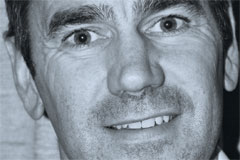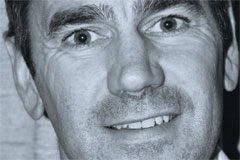Exit out-of-hours stage left


I am considering hanging up my boots – not from my weekly parade around the hockey pitch, or even my day job, but from the ongoing soap opera of providing out-of-hours care.
I feel like a screen writer must feel with writer’s block, in that the plot seems the same each week and the cast are struggling to make it interesting.
I am not sure how many of our readers regularly perform on the out-of-hours stage, but if our local area is anything to go by, the answer will be ‘not many’. The rota has become more and more difficult to fill as the work has become more intense, the risk of litigation seems to be rising, and many consider the financial rewards to be inadequate to put themselves through the mill on a regular basis. We are faced with a ‘skill mix’ of doctors, paramedic practitioners, urgent care practitioners, advanced nurse practitioners and empty shifts with varying frequency.
In my experience, there is still a huge need and role for doctors on the ground in the out-of-hours setting. In many ways it seems a shame others will miss out on the unique opportunities provided by out-of-hours work, and I have some fond memories that I will cherish. As I sit there each week, trying to sort the wheat from the chaff, and spot the one truly sick patient amongst the cast of thousands, I often reminisce over challenging and rewarding cases. From suicide to childbirth, mania to deep depression, shortness of breath to no breath at all, there is never a dull decade when working out of hours.
There is still a huge need and role for doctors in the out-of-hours setting
Some have even been amusing. One of the most interesting encounters I had was when we were driving back across the city at 3am and came across an unconscious man on a zebra crossing with a bike beside him, a taxi driver standing over him, and a few spectators. It was a bit like one of those riddles that the kids present you with – you know, with an empty room, a pool of water and a discarded wig on the floor, and you have to work out how the hamster escaped.
It all got a bit Monty Python as the passers-by (there were many) started effing and blinding at the taxi driver who it turned out was an innocent bystander and had simply stopped his cab to help.
Whilst waiting for paramedics to arrive, I tried to establish whether the man had suffered a head injury (probably not) or was heavily intoxicated (definitely was). As he slowly came to his, moderately impaired, senses, he started to ‘communicate’. After myself and the paramedics had tried to convince him to attend A&E, he turned to the paramedic and said ‘can you tell him (gesturing at me), to f*£@ off?’. At this point we got back in the car and chuckled off to our next call.
It’s not all fun and games though. The role is vital in our overall cash strapped NHS, but needs experienced clinicians if it is to work properly. If total redesign is on the cards again, then getting rid of NHS 111 and having a single point of access to urgent care seems the obvious option (with effective triage).
With current arrangements, funding levels and working risks, it will be nigh on impossible to attract new cast members, and when the final curtain falls on unfilled rotas it will be too late.
No doubt up and down the country commissioners are looking for ‘locally driven solutions’, and our STPs will have various different plot lines being in development.
Let’s just hope that as the play progresses the audience will not be left with a huge feeling of anti-climax at the ending.
Dr Richard Cook is a GP partner in Hurstpierpoint, West Sussex. You can follow him on Twitter @drmoderate
Pulse October survey
Take our July 2025 survey to potentially win £1.000 worth of tokens




 Oviva’s fully remote Tier 3 Weight Management programme
Oviva’s fully remote Tier 3 Weight Management programme





